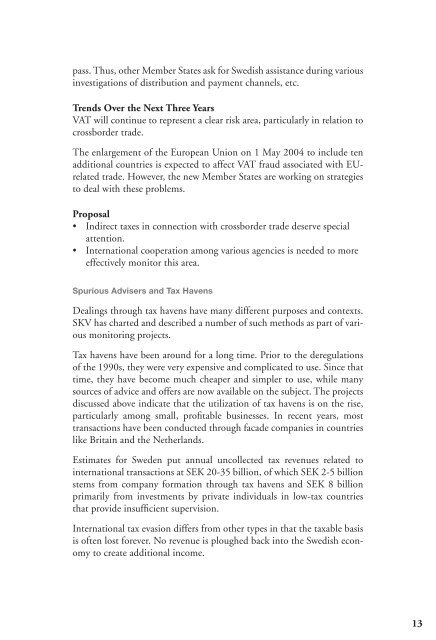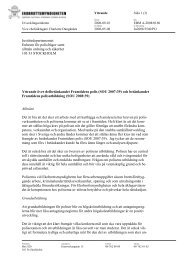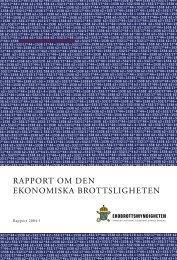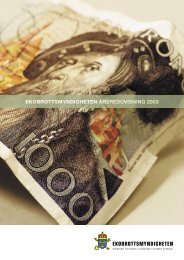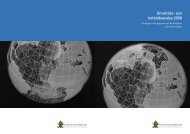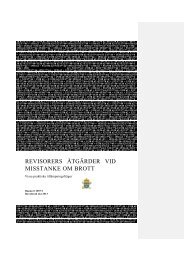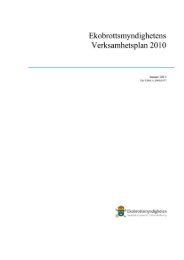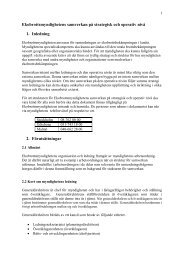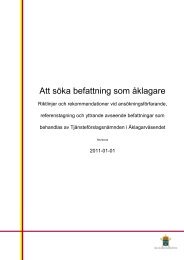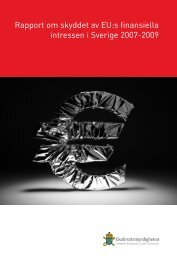Economic crime report 2004 - Ekobrottsmyndigheten
Economic crime report 2004 - Ekobrottsmyndigheten
Economic crime report 2004 - Ekobrottsmyndigheten
Create successful ePaper yourself
Turn your PDF publications into a flip-book with our unique Google optimized e-Paper software.
pass. Thus, other Member States ask for Swedish assistance during various<br />
investigations of distribution and payment channels, etc.<br />
Trends Over the Next Three Years<br />
VAT will continue to represent a clear risk area, particularly in relation to<br />
crossborder trade.<br />
The enlargement of the European Union on 1 May <strong>2004</strong> to include ten<br />
additional countries is expected to affect VAT fraud associated with EUrelated<br />
trade. However, the new Member States are working on strategies<br />
to deal with these problems.<br />
Proposal<br />
• Indirect taxes in connection with crossborder trade deserve special<br />
attention.<br />
• International cooperation among various agencies is needed to more<br />
effectively monitor this area.<br />
Spurious Advisers and Tax Havens<br />
Dealings through tax havens have many different purposes and contexts.<br />
SKV has charted and described a number of such methods as part of various<br />
monitoring projects.<br />
Tax havens have been around for a long time. Prior to the deregulations<br />
of the 1990s, they were very expensive and complicated to use. Since that<br />
time, they have become much cheaper and simpler to use, while many<br />
sources of advice and offers are now available on the subject. The projects<br />
discussed above indicate that the utilization of tax havens is on the rise,<br />
particularly among small, profitable businesses. In recent years, most<br />
transactions have been conducted through facade companies in countries<br />
like Britain and the Netherlands.<br />
Estimates for Sweden put annual uncollected tax revenues related to<br />
international transactions at SEK 20-35 billion, of which SEK 2-5 billion<br />
stems from company formation through tax havens and SEK 8 billion<br />
primarily from investments by private individuals in low-tax countries<br />
that provide insufficient supervision.<br />
International tax evasion differs from other types in that the taxable basis<br />
is often lost forever. No revenue is ploughed back into the Swedish economy<br />
to create additional income.<br />
13


